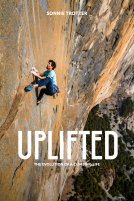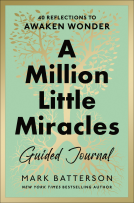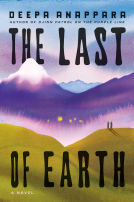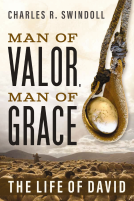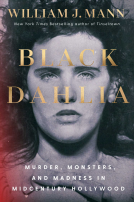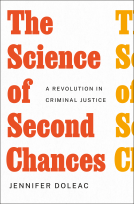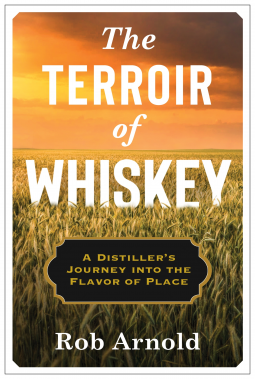
The Terroir of Whiskey
A Distiller's Journey Into the Flavor of Place
by Rob Arnold
This title was previously available on NetGalley and is now archived.
Send NetGalley books directly to your Kindle or Kindle app
1
To read on a Kindle or Kindle app, please add kindle@netgalley.com as an approved email address to receive files in your Amazon account. Click here for step-by-step instructions.
2
Also find your Kindle email address within your Amazon account, and enter it here.
Pub Date Dec 22 2020 | Archive Date Mar 10 2021
Talking about this book? Use #TheTerroirofWhiskey #NetGalley. More hashtag tips!
Description
In this book, the master distiller Rob Arnold reveals how innovative whiskey producers are recapturing a sense of place to create distinctive, nuanced flavors. He takes readers on a world tour of whiskey and the science of flavor, stopping along the way at distilleries in Kentucky, New York, Texas, Ireland, and Scotland. Arnold puts the spotlight on a new generation of distillers, plant breeders, and local farmers who are bringing back long-forgotten grain flavors and creating new ones in pursuit of terroir. In the twentieth century, we inadvertently bred distinctive tastes out of grains in favor of high yields—but today’s artisans have teamed up to remove themselves from the commodity grain system, resurrect heirloom cereals, bring new varieties to life, and recapture the flavors of specific local ingredients. The Terroir of Whiskey makes the scientific and cultural cases that terroir is as important in whiskey as it is in wine.
Advance Praise
"Arnold’s book is a compelling personal account of his ambition to answer the question of what terroir actually is. For the distilling world to take this idea seriously, there must be a push, and this book may well be that push. "
-Dawn Maskell, director of the International Centre for Brewing and Distilling
Available Editions
| EDITION | Other Format |
| ISBN | 9780231194587 |
| PRICE | $34.95 (USD) |
Average rating from 9 members
Featured Reviews
The Terroir of Whiskey is a fascinating read and perfect for any whiskey enthusiast or a novice looking to learn more. The book is filled with a wealth of information and discusses a side of whiskey most people attribute to merely a ”wine” thing. Rob Arnold breaks down the importance of terroir in whiskey making and how it truly impacts the taste of the finished product.
A version of this review previously appeared in Shelf Awareness and is republished here with permission.
"Terroir" is a "somewhat controversial concept with an unsettled definition." It is essentially a French descriptor for how crop flavors are influenced by the environment (soil layers, topography, climate, etc.). As master distiller at Firestone & Robertson Distilling Co., maker of the TX Whiskey brand, Rob Arnold is spellbound by terroir. And Arnold himself is a study in terroir--almost all of his mother's side of the family worked in bourbon.
Arnold undertook a years-long process to educate himself about how environment affects product, ultimately writing a Ph.D. dissertation for Texas A&M's plant-breeding program on "how genetic and environmental forces influence corn-derived flavors in whiskey." In an industry that commonly uses co-op and commodity sales, TX Whiskey is one of a rising number of distillers sourcing grains from one farm to understand better environmental impact on flavor.
Arnold's thesis research forms the backbone of The Terroir of Whiskey, an in-depth look at crop growth, fermentation, distillation and aging of wine and whiskey. The wine industry--known for using terroir--was where Arnold began his immersive journey to show a correlation in whiskey. His world travel to wine and whiskey producers, discussions with makers, tastings, analyses and conclusions make for heady reading. Arnold smartly and capably writes for the distiller, educated taster and novice alike, breaking issues into lay language as necessary (even using Bugs Bunny, Daffy Duck and the Tasmanian Devil to explain). Arnold provides specifics for the reader to taste along with him, resulting in a full sensory educational experience.
1/5 stars
Genre: Mixology
Description:
Turn over a bottle of wine and you may well see a reference to its terroir, the total local environment of the vineyard that grew the grapes, from its soil to the climate. Winemakers universally accept that where a grape is grown influences its chemistry, which changes the flavor of the wine. A detailed system has codified the idea that where the grapes are grown matters to the wine. But why don’t we feel the same way about whiskey?
The master distiller Rob Arnold reveals how innovative whiskey producers are recapturing a sense of place to create distinctive, nuanced flavors. He takes readers on a world tour of whiskey and the science of flavor, stopping along the way at distilleries in Kentucky, New York, Texas, Ireland, and Scotland. Arnold puts the spotlight on a new generation of distillers, plant breeders, and local farmers who are bringing back long-forgotten grain flavors and creating new ones in pursuit of terroir. In the twentieth century, we inadvertently bred distinctive tastes out of grains in favor of high agronomic yields—but today’s artisans have teamed up to remove themselves from the commodity grain system, resurrect heirloom cereals, bring new varieties to life, and recapture the flavors of specific local ingredients. The Terroir of Whiskey makes the scientific and cultural cases that terroir is as important in whiskey as it is in wine.
Pros and Cons:
So this is the first book I wasn't able to get all the way through and that's my fault. I misunderstood what the book was going to be about. I thought it was going to be more about making drinks and the best whiskey flavors for each drink and it's not that at all. It reads much more like a research paper.
Would I recommend it?
For bartenders or people super interested in Whiskey.
The was an interesting account of the process of the whiskey production. It was very in depth and fascinating, but I did find it rather dry and dull at points.
 Tanya A, Reviewer
Tanya A, Reviewer
Arnold has supplied the reader with a not to scientific approach to explain the terroir of whiskey, much like what is done for wine. He takes us where no one has gone before with whiskey. In it we get to meet local farmers and distillers as he goes into detail what it takes to make a good whiskey great. I have friends that are whiskey snobs and I think this would be a great gift for them to make them actually appreciate their drink just all the more. Special thanks to NetGalley for this ARC in exchange for my honest review.


